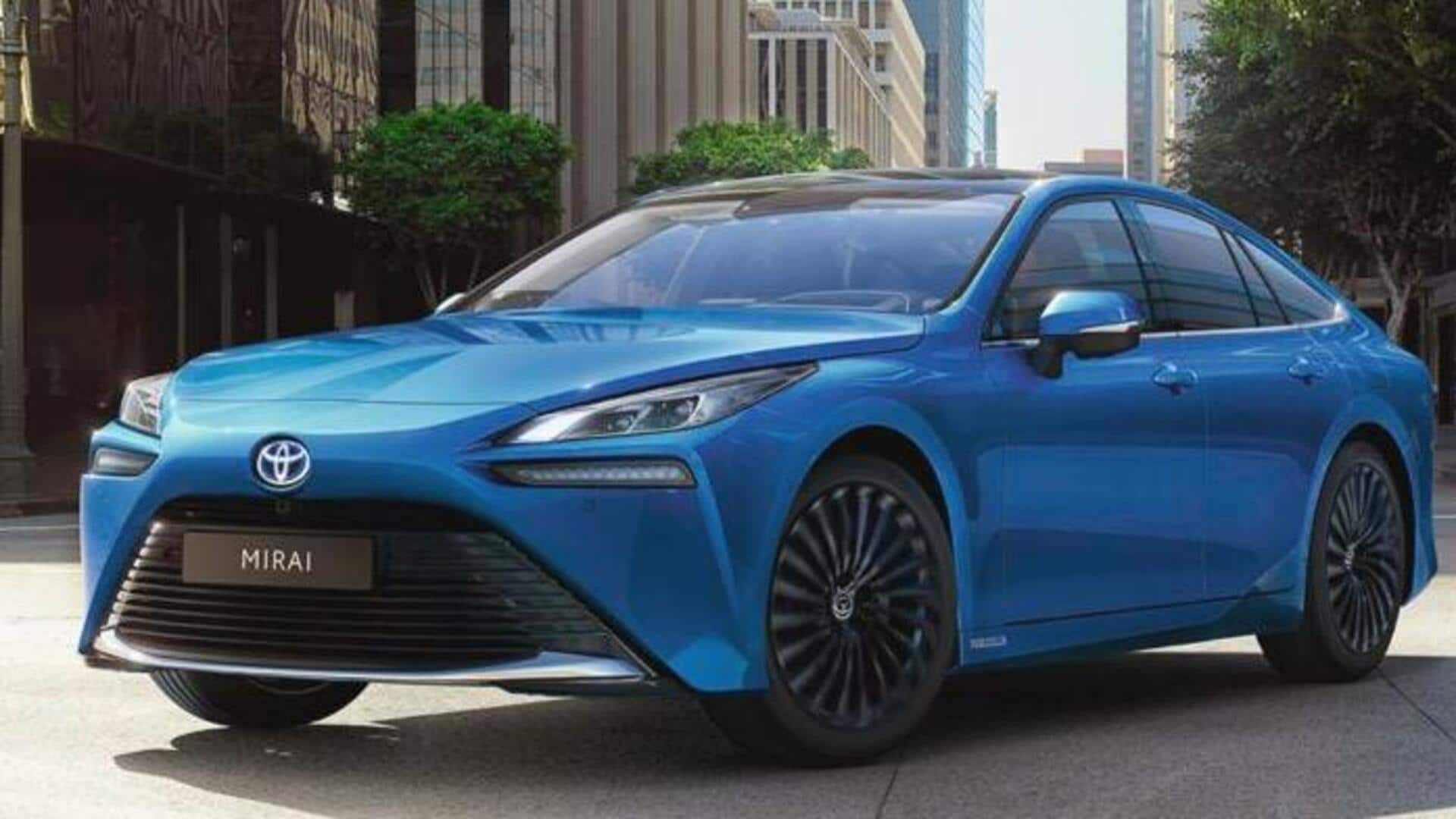
Why scientists want Paris Olympics to ditch Toyota's hydrogen car
What's the story
A collective of 120 scientists, academics, and engineers have penned an open letter, urging the Paris Olympics organizers to reject Toyota's hydrogen-powered Mirai as the official vehicle of the games. They argue that this choice contradicts the event's commitment to environmental sustainability. The authors, from esteemed institutions like the University of Cambridge, University of Colorado, and Oxford University state: "Toyota's promotion of a hydrogen car is scientifically misaligned with net-zero and will damage the reputation of the 2024 Games."
Sustainability concerns
Environmental impact of hydrogen cars questioned
The authors of the letter argue that while hydrogen cars emit no carbon at the tailpipe, 96% of the world's hydrogen is derived from fossil fuels like methane gas. This makes most hydrogen-powered cars more polluting compared to electric vehicles (EVs) and only slightly cleaner than traditional combustion engine models. They further suggest that consumers who purchase the Mirai will likely run it on planet-heating fossil fuels.
Fleet plans
Toyota's green commitment under scrutiny
Toyota plans to supply the official fleet for the Paris Olympics, including 500 Mirai cars and 10 coaches running on hydrogen, besides 1,150 EVs. The company claims it will run the Mirais on hydrogen derived from organic matter and water, generated from renewable sources. However, critics argue that in reality, consumers who purchase the Mirai will likely run it on hydrogen derived from fossil fuels.
Decarbonization debate
Paris Olympics' green goals challenged
The Paris Olympics organizers aim to host the "greenest-ever Games," with plans to halve the carbon footprint, compared to levels in the 2010s by running entirely on renewable energy. This goal has led to criticism of Toyota's "multi-path strategy" for decarbonizing its vehicles, which some say focuses too little on EVs. Passenger cars and vans account for roughly 10% of global energy-related carbon pollution.
Infrastructure issues
Toyota's hydrogen-powered future may face hurdles
Toyota is investing in EVs but has also heavily focused on hybrids and plug-in hybrids. The automaker is one of the few major companies betting on hydrogen-powered vehicles. However, hydrogen vehicles have yet to become a popular choice for consumers, due to limited infrastructure for refueling with hydrogen. Green hydrogen—made from the electrolysis of water using renewable power like wind and solar—is not yet available to drivers and is unlikely to be offered at the pump anytime soon, experts say.